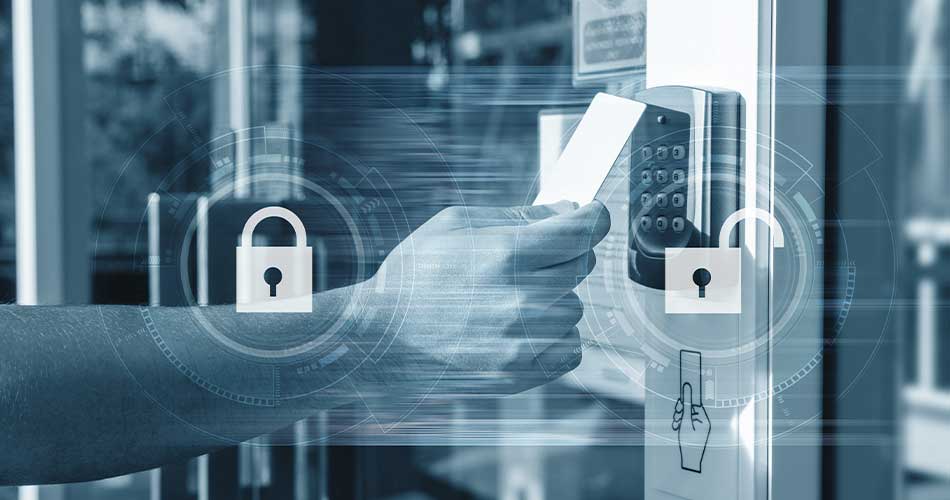Not every incident of unauthorized access is a criminal break-in – some of the most common types spring from common courtesy, like holding the door for a colleague.
Some of the most common modes of unauthorized access include:
• Tailgating: When one or more people follow an authorized user through a door, reducing the number of people who badge in, reducing security’s insight into who is inside the building when, and exposing the building to risk.
• Propping Open Doors: Whether employees prop open a door for frequent cigarette breaks or because they’re moving something cumbersome in or out of the building, when users prop open doors for convenience, they’re increasing the risk of unauthorized access. In hospital settings, this can also include taping over door latches for easier, faster access by people wheeling in gurneys.
• Lost, Stolen or Loaned Keys: Key control is a vast problem for many enterprises, and for employees who only need to access a facility occasionally, the keys’ absence could go unnoted for quite some time. Re-keying locks also prove expensive and time-consuming if and when an employee reports a key missing.
• Access Cards: A higher-tech alternative to traditional keys, access control cards are prone to similar risks of being lost, stolen or shared. Some card types are less prone to duplication than others, and some can be used in a multi-factor authentication system to help verify users’ identities, but this is challenging to use at high-traffic areas such as main entryways.
• Levering Doors: Although user error and common courtesy may contribute to the possibility of unauthorized access, don’t overlook the potentially criminal side. Doors can be opened by screwdrivers, crowbars or many other tools.
User education and awareness can go a long way when it comes to addressing many forms of unauthorized access risk. Informing your employees about the risks of holding open the door for strangers – or even co-workers – or propping open exterior doors even for a few hours at a time can help to keep your enterprise safer.

